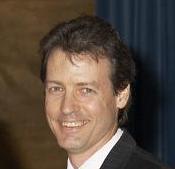
Project Summary:
Brain tumours are the leading cause of cancer related death and disability in children. The Royal Children’s Cancer research laboratory is focused on improving our understanding of medulloblastoma, the commonest malignant brain tumour of childhood. This is cured in 50-75% of cases with a combination of surgery, radiation and chemotherapy. For those who relapse the prognosis is bleak, with fewer than 10% achieving long-term survival. Survivors typically have long-term disabilities, both due to direct effects of the tumour and the side effects of treatment, particularly radiation, on normal brain. Therapeutic advances have been limited in the past decade and medulloblastoma remains a significant cause of cancer related death and disability in children.
The Children’s Cancer Research Laboratory is a team of scientists and clinicians focused on improving our biologic understanding of malignant brain tumours. We have established innovative models to study primary tumours collected after surgery in addition to established cell lines. Our focus is on elucidating the biology of relapsed, radiation resistant tumours for which there are no effective current treatments. We are particularly interested in possible links between resistance and stem-like features of tumour cells. Our studies have shown that radiation resistant medulloblastoma cells have increased amounts of a potentially critical drug transporter protein called ABCG2. This may be an important way in which these tumour cells survive and blocking it may increase the efficacy of radiation and chemotherapy.
Funding from the Brain Foundation provides critical support for us to determine the role of the ABCG2 protein in radiation resistant medulloblastoma. It will substantially improve our knowledge of this very challenging disease. We aim to establish if ABCG2 inhibition is a potential new approach to treatment for children whose disease returns after treatment. Our vision is to develop better biologically based therapies that will cure more children with fewer side effects giving them the lives they deserve.



 The Brain Foundation is the largest, independent funder of brain and spinal injury research in Australia. We believe research is the pathway to recovery.
The Brain Foundation is the largest, independent funder of brain and spinal injury research in Australia. We believe research is the pathway to recovery.